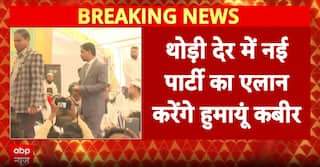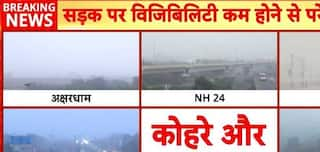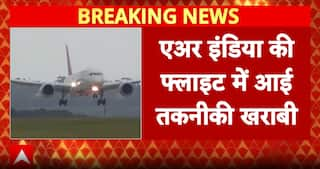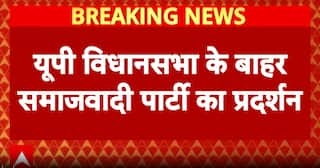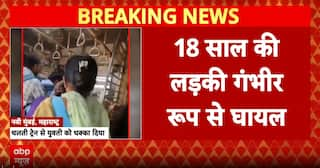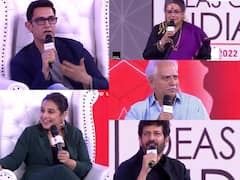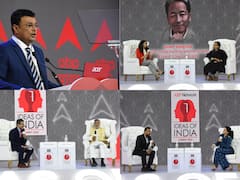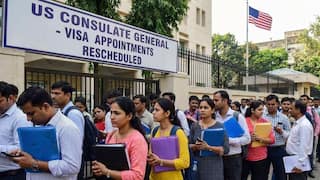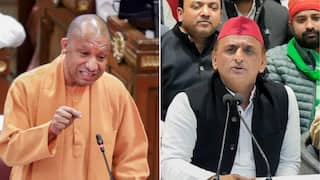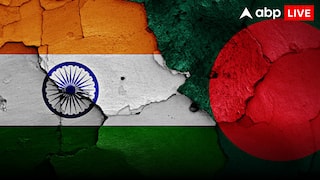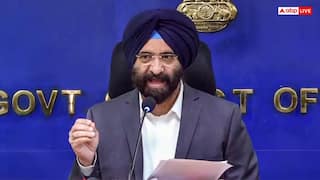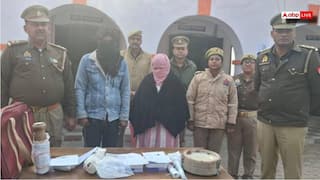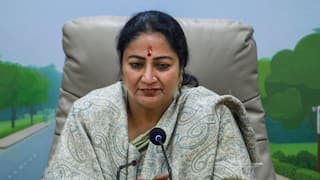Pluralism To Hindutva: ABP Chief Editor Atideb Sarkar Talks About Generational Shifts Shaping India's Political Landscape
The Chief Editor was delivering the Keynote Address at the third edition of ABP Network's 'Ideas Of India Summit'.

Ideas Of India 2024: Chief Editor, ABP Network, Atideb Sarkar outlined the evolving socio-political landscape of India, highlighting the ascendancy of Hindutva ideology, the pivotal role of millennials in shaping the country's political future, and the contrasting perspectives of Generation Z as he delivered his keynote address at the third edition of ABP Network's two-day 'Ideas Of India Summit' that got underway on Friday, February 23.
The speech began with a reflection on India's journey since Independence, emphasising the foundational values of democracy, pluralism, and development as outlined by noted academician Sunil Khilnani. However, Sarkar pointed out the shifting sands of Indian identity, particularly with the rise of the Ram Mandir in Ayodhya and the increasingly dominant narrative that India must embrace its Hindu heritage as central to its national identity.
Citing Rashtriya Swayamsewak Sangh (RSS) chief Mohan Bhagwat, the ABP Network chief editor delved into the definition of Hindutva as more than a religious identity, portraying it as a value system that includes unity in diversity and a harmony between the spiritual and the material.
"The RSS chief defined Hindutva as: 'the name of the value system comprising unity in diversity, harmony, sacrifice, temperance and gratefulness, of which truth is the foundation.... In the Bharatiya system, along with conducting scientific experiments to study the transient material world, we have also made studies about the eternal spiritual world.... We are never satisfied by holding discussions on logic and philosophy merely at the intellectual level'," Sarkar said at the event.
He also quoted Prime Minister Narendra Modi's statement during the inauguration of the Ram Mandir, which underscored Ram as the essence of the nation's faith, thought, foundation, and the Constitution.
"The fusion of the spiritual and the material, of religion and government, reached its climax during the inauguration of the Ram Mandir in January. The Prime Minister said: 'Ram is the faith of Bharat; Ram is the foundation of Bharat. Ram is the thought of Bharat; Ram is the constitution of Bharat.' Today, this represents the main current in Indian politics," Sarkar said.
Citing author Vivan Marwaha, his address shed light on the critical role of millennials in the re-election of Narendra Modi in 2019, highlighting their demand for leaders who resonate with their identity and offer a decisive leadership. In contrast, Generation Z's attitudes and aspirations were presented as notably different, with a higher inclination towards social media influence, wokeness, and a more expressive individuality, suggesting a potential avenue for progressive politics to resonate with younger voters.
"Vivan Marwaha writes that this generation, born between 1981 and 1996, 'had a big, almost pivotal, role in [Narendra] Modi’s landslide re-election [in 2019], and the BJP’s seemingly unbreakable hold over the country’s politics'. Most lack economic security because of inadequate job creation. But they are tired of the old elites in Lutyens Delhi, and vote for people “who speak, look and pray like them'. They demand bold, decisive leadership," Sarkar said.
He added: "The generation born between 1997 and 2010 thinks a little differently,' write researchers Feryl Badiani and Harish Krishna. Growing up amidst social media, Gen Z are more likely to defy their parents and listen to their friends. Wokeness has become their social currency. Away from the largest cities, they still play safe in their careers and family lives. But they express themselves more freely through their hobbies and, like millennials, have a need for belonging. Ethics have a greater influence on what they buy."
Sarkar proposed an alternative vision for India, one that harmonises economic and social progress with environmental care, pluralism, and national security. This vision, according to him, requires articulation by leaders who embody these values and can connect with the youth.
"Progressives might find an opportunity here. Another idea of India could combine economic and social progress, care for the environment, pluralism and national security. It could restore the constitutional balance between national unity and the dignity of the individual. It would have to show how more jobs could be created more humanely. And it would need to be articulated by a leader who embodies these values and with whom young voters identify," he said.
Concluding the address, the chief editor emphasised the need for a new narrative in Indian politics, questioning the exclusivity of "Ram Rajya" and PM Modi's leadership as the only paths forward. By highlighting the dichotomy within India, as illustrated by comedian Vir Das, Sarkar called for a broader discourse on India's identity, encapsulating both its challenges and its unity.
The Ideas Of India Summit
ABP Network's 'Ideas Of India Summit' is back with its third edition, and the timing for such an event cannot be better. Taking place on February 23 & 24, just before the Lok Sabha elections 2024 in the world's biggest democracy, the 'Ideas of India Summit' will delve into 'The People's Agenda' and explore the various facets of the Lok Sabha elections 2024.
The 'Ideas Of India Summit' is ABP Network's flagship event that brings together the best of the best on a single platform to delve into the numerous similarities and vast differences that make up the world's largest democracy — 'India, that is Bharat'. February 23 and 24 will see the annual event's third edition come right ahead of the Lok Sabha election 2024 and set 'The People's Agenda'.
The previous two editions — with their themes 'Naya India' and 'Open-Minds Open Minds' — were successful in bringing out the ideas and concepts that drive India, and the third edition promises to be nothing less.










